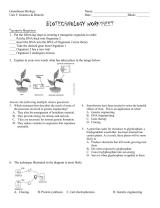What is the importance of empirical research?
Empirical research is a fundamental component of scientific inquiry, and its significance lies in its ability to provide evidence-based answers to questions, test hypotheses, and contribute to the advancement of knowledge in various fields. Here are some key aspects highlighting the importance of empirical research:
Validating or Refuting Hypotheses: Empirical research allows researchers to test hypotheses and theories. By conducting experiments or collecting real-world data, researchers can either confirm that their hypotheses are supported by evidence or reject them if the evidence suggests otherwise. This process helps refine existing theories and develop new ones.
Evidence-Based Decision-Making: In fields such as medicine, public policy, and business, empirical research provides the foundation for evidence-based decision-making. Policymakers, healthcare professionals, and business leaders rely on empirical studies to inform their choices and strategies, leading to more effective and informed decisions.
Problem Solving: Empirical research helps address practical problems and challenges in various domains. Researchers can investigate and identify solutions to real-world issues by systematically gathering and analyzing data, which can lead to improved outcomes and solutions.
Advancing Knowledge: Empirical research contributes to the accumulation of knowledge in a particular field. Over time, as more studies are conducted and findings are published, a body of empirical evidence grows, which forms the basis for further research and understanding.
Quality Control: In industries such as manufacturing and quality control, empirical research is essential for ensuring product quality and safety. Statistical methods and empirical testing are used to monitor and improve the quality of products and services.
Innovation and Technology: Empirical research is often at the heart of technological advancements and innovations. Research and development in various fields, including engineering, materials science, and computer science, rely on empirical data to create new technologies and improve existing ones.
Accountability and Transparency: In many areas, including government and corporate governance, empirical research plays a role in holding individuals and organizations accountable for their actions. Transparency and accountability are enhanced when decisions are based on empirical evidence.
Predictive Modeling: Empirical research forms the basis for developing predictive models. These models are used in fields such as finance, weather forecasting, and epidemiology to make forecasts and predictions about future events or trends.
Understanding Human Behavior: In psychology, sociology, and related fields, empirical research is crucial for understanding human behavior, attitudes, and motivations. This knowledge can inform interventions, therapies, and public policies aimed at improving individual and societal well-being.
Peer Review and Reproducibility: Empirical research follows a rigorous process that includes peer review and, ideally, reproducibility. This ensures that research findings can be critically examined by other experts in the field, promoting transparency and the reliability of scientific knowledge.
In summary, empirical research is the cornerstone of scientific inquiry and evidence-based decision-making across various disciplines. It allows us to investigate the world around us, answer questions, solve problems, and drive progress and innovation. Without empirical research, our understanding of the world and our ability to make informed decisions would be severely limited.













